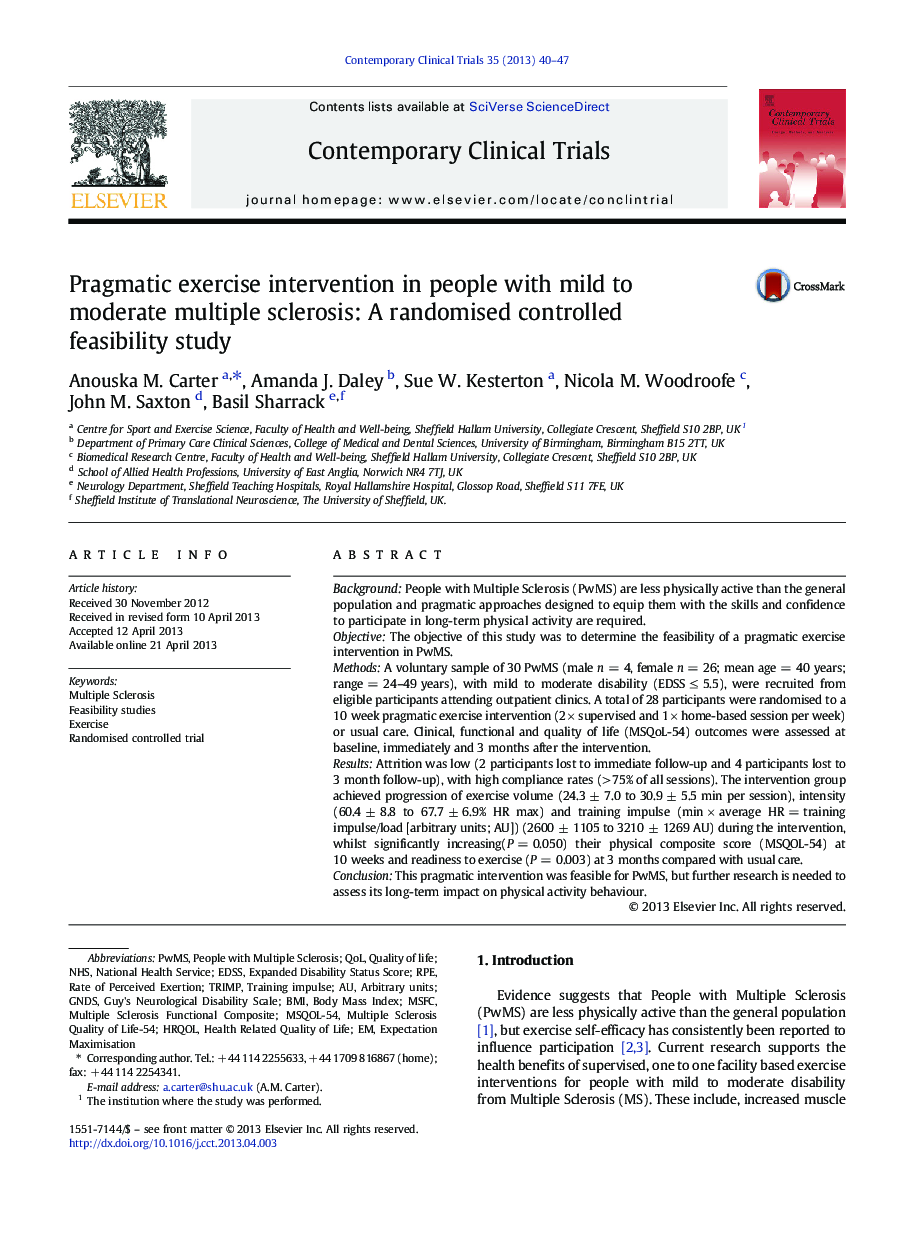| Article ID | Journal | Published Year | Pages | File Type |
|---|---|---|---|---|
| 3462925 | Contemporary Clinical Trials | 2013 | 8 Pages |
BackgroundPeople with Multiple Sclerosis (PwMS) are less physically active than the general population and pragmatic approaches designed to equip them with the skills and confidence to participate in long-term physical activity are required.ObjectiveThe objective of this study was to determine the feasibility of a pragmatic exercise intervention in PwMS.MethodsA voluntary sample of 30 PwMS (male n = 4, female n = 26; mean age = 40 years; range = 24–49 years), with mild to moderate disability (EDSS ≤ 5.5), were recruited from eligible participants attending outpatient clinics. A total of 28 participants were randomised to a 10 week pragmatic exercise intervention (2 × supervised and 1 × home-based session per week) or usual care. Clinical, functional and quality of life (MSQoL-54) outcomes were assessed at baseline, immediately and 3 months after the intervention.ResultsAttrition was low (2 participants lost to immediate follow-up and 4 participants lost to 3 month follow-up), with high compliance rates (> 75% of all sessions). The intervention group achieved progression of exercise volume (24.3 ± 7.0 to 30.9 ± 5.5 min per session), intensity (60.4 ± 8.8 to 67.7 ± 6.9% HR max) and training impulse (min × average HR = training impulse/load [arbitrary units; AU]) (2600 ± 1105 to 3210 ± 1269 AU) during the intervention, whilst significantly increasing(P = 0.050) their physical composite score (MSQOL-54) at 10 weeks and readiness to exercise (P = 0.003) at 3 months compared with usual care.ConclusionThis pragmatic intervention was feasible for PwMS, but further research is needed to assess its long-term impact on physical activity behaviour.
